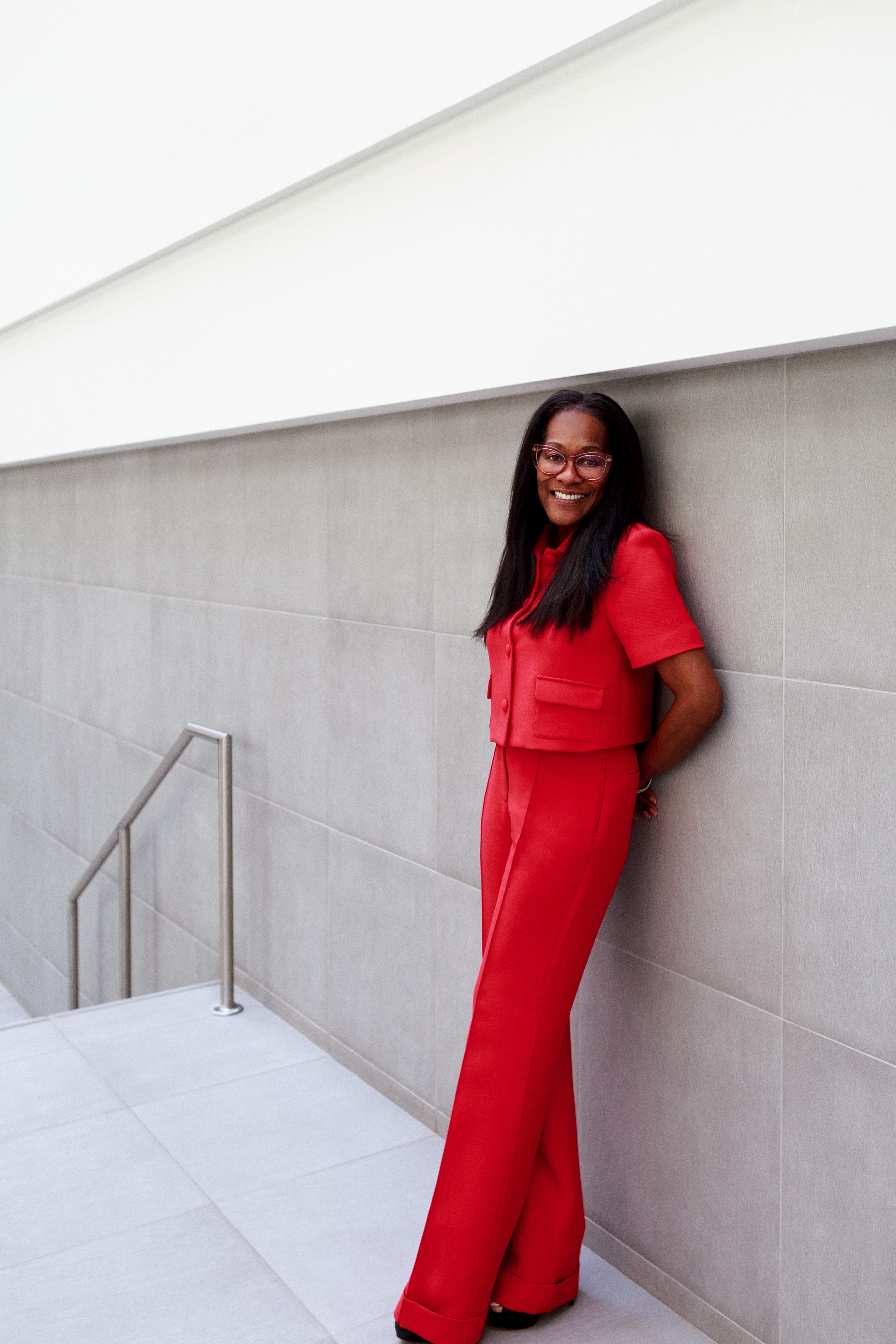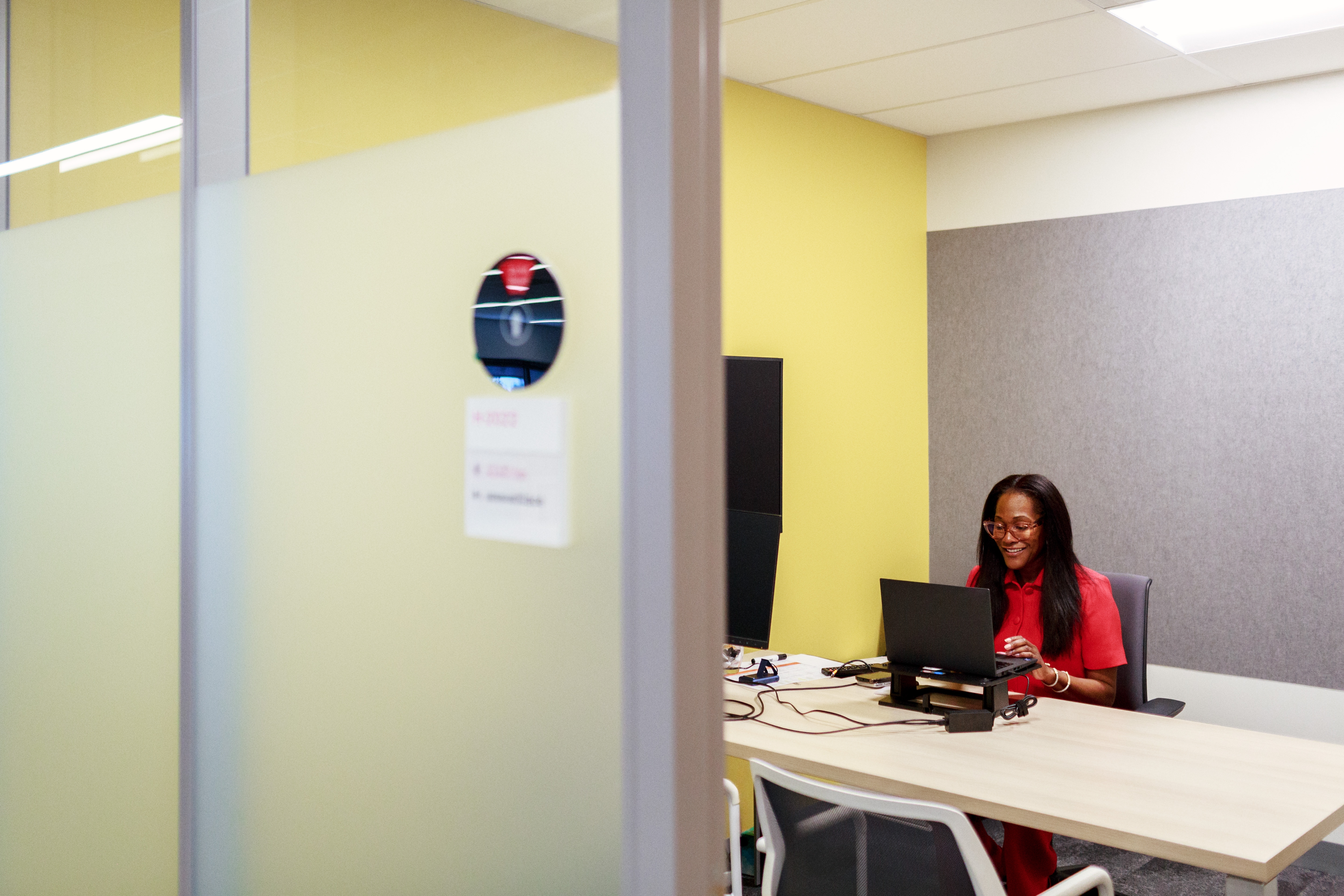“I never considered anything else.” That’s how Africa F. Wallace, M.D., Global Vice President of Medical Affairs at Johnson & Johnson MedTech, describes her unwavering path to becoming a surgeon.
So, when she made the decision to transition into the medtech industry, it marked a bold shift—one that expanded her ability to improve patient outcomes far beyond the operating room. Today she leads with purpose, connecting innovation to the everyday, real-world challenges surgeons face.
Learn more about her journey in medicine and the biggest scientific questions she’s working to solve with her team at J&J MedTech.
Q: What inspired you to become a surgeon?
Dr. Africa Wallace: For me, medicine has always been more than a career. It’s a calling. As a child I was inspired by my physician, who demonstrated how science, skill and compassion could profoundly change lives. That early exposure ignited a passion that never wavered. I never considered pursuing anything else.
Long before STEM was a buzzword, my parents encouraged my love of science and math. I remember the dissection kit they bought me in elementary school. That was the moment I became captivated by anatomy—the structure, the systems, the elegance of the human body. I was drawn to the exactness of it all, and the challenge of using that knowledge to solve complex problems.

In medical school that fascination deepened. During my first year, I dissected my group’s cadaver nearly on my own—not because I had to, but because I couldn’t stay away. My classmates said, “You’re meant to be a surgeon.” They were right. Surgery was the perfect blend of technical mastery, rapid decision-making and the opportunity to make a difference in the most critical moments.
That early sense of wonder, the pursuit of precision and the drive to solve problems in real time is what led me to surgery. And that’s what continues to guide me today.
What led you to consider a career in medtech?
AW: It wasn’t about leaving medicine; it was about expanding upon it. After years in the operating room, I started to ask a bigger question: How can I impact more lives beyond the ones I touch directly by performing surgery? I loved the precision and intensity of the O.R., but I also saw an opportunity to drive change on a broader scale.
The medtech industry offered that possibility. It gave me a platform to combine clinical insight and innovation to be part of shaping solutions that reach patients around the world. I saw how science and technology could come together to close gaps in care, reduce disparities and solve challenges faced daily by surgeons.
That’s what inspired me to make the leap. Not just to do something different, but to do something bigger.
My focus is on generating high-quality evidence, elevating the voice of the surgeon and making sure we’re solving the right problems. The goal is simple: better outcomes, delivered consistently, at scale.
What does it feel like to make this kind of career change?
AW: Stepping away from surgery was emotional. For so long, being a surgeon wasn’t just what I did, it was who I was. Leaving the OR felt like letting go a piece of myself.
But what’s always driven me is the desire to make a difference in people’s lives. And I realized my work could still have a meaningful impact, just in a different way.
The transition has been exhilarating, challenging and humbling, all at the same time. I went from being an expert to a learner again. But that discomfort has also brought growth, clarity and a renewed sense of purpose.
Is there anything you miss—or don’t miss—about clinical practice?
AW: What I miss most is the connection with patients—being present during some of the most vulnerable, high-stakes moments in their lives. It was a privilege to earn their trust and to offer both skill and support when they and their family needed it the most. I also miss the operating room: the camaraderie, the energy and the shared mission of the surgical team. There’s nothing quite like the instant impact of surgery or the connection with your team and the patient in those critical moments.
How does your surgical experience improve your leadership abilities in your current role?
AW: Surgery shaped how I lead. It taught me how to make high-stakes decisions under pressure, to stay calm in uncertainty and to lead with clarity and purpose, especially when the stakes are high.
In the OR, you learn quickly that success depends on the entire team. That same mindset applies to my current role. I know how to build trust, communicate clearly and align people around a shared goal. And just like in surgery, I believe in preparation, precision and accountability—qualities that translate directly into effective leadership.
Surgery didn’t just teach me how to operate. It taught me how to lead with focus, resilience and compassion.
What’s the biggest scientific challenge or question you’re facing at J&J MedTech, and how are you working to solve it?
AW: One of the biggest challenges in Medical Affairs is ensuring that innovation translates into meaningful, measurable outcomes for patients. As technology rapidly evolves, we’re tasked with proving not just that these tools work, but that they improve care in the real world.
My focus is on generating high-quality evidence, elevating the voice of the surgeon and making sure we’re solving the right problems. We’re also building stronger partnerships with the surgical community to ensure that the technology we bring forward fits into the realities of clinical practice. The goal is simple: better outcomes, delivered consistently, at scale.

What have been some of your biggest learnings about medtech now that you’re working in the industry?
AW: One of the biggest learnings has been the complexity and scale of bringing innovation to the market. In surgery, decisions and impact are immediate. In industry, every decision requires alignment across functions (regulatory, commercial, legal, R&D) and that takes time, communication and strategy.
I’ve also learned the importance of influence without authority. In the OR, leadership is clearly defined; here it’s about collaboration, clarity of vision and building consensus.
Finally, I appreciate how powerful it is when clinicians and industry work together. When we align science, strategy and patient needs, the potential impact is transformational.
Is there a way in which your approach to medicine in general has fundamentally changed throughout this journey?
AW: Absolutely. This journey has changed how I think about surgery and impact. In clinical practice, I saw the results of my work immediately. That’s one of the most gratifying parts of surgery. But in industry, I’ve had to shift to a long-term perspective, where change is incremental, strategic and often measured over time.
What’s fundamentally changed is how I define success. I now think beyond that individual patient to how can we improve outcomes around the world. It’s no longer just about doing work. It’s about enabling others to do it safer, better, consistently and at scale.
